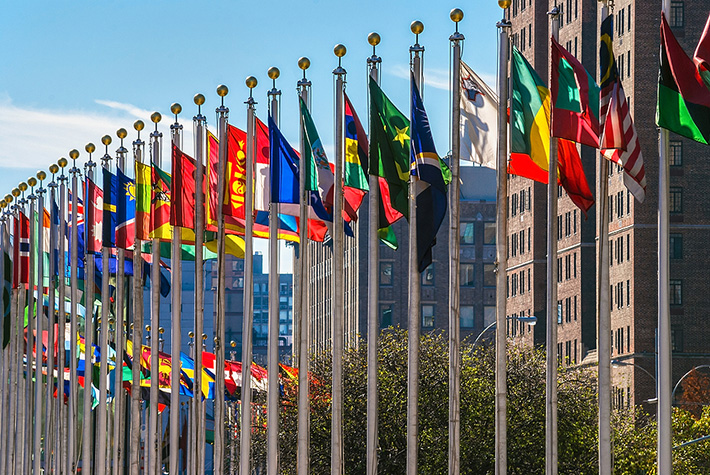UN Pushes for One-World Government

The United Nations (UN) “Summit of the Future” in September 2024 marked a significant turning point in the UN’s push for global governance. Delegates from 193 nations met to finalize the “Pact for the Future,” a plan that expands the UN’s authority on issues like climate change, digital governance, and human rights.
The UN’s Globalist Agenda
The UN’s “Pact for the Future” goes well beyond the need to tackle global problems like poverty or climate change. It aims to push secular, progressive values on every nation whether they want them or not.
The pact promotes policies endorsing abortion and gender fluidity, usurping control over children in the classroom, and demanding the adoption of an ideology that goes directly against the Bible. These concepts are not merely suggestions, but global laws the UN wants to put in place.
The “Pact for the Future” also focuses heavily on consolidating global power into the hands of unelected international leaders. If enacted, the global governance model would place decisions about climate, education, money, technology, and human rights into the hands of a global body that answers to no one but itself. Argentina’s president, Javier Milei, has strongly condemned the pact as an attempt to impose a globalist, socialist agenda that diminishes the autonomy of nations.
For Christians, however, this isn’t just a political issue—it’s a moral one. As Christians, we are called to respect governing authorities, but we must also draw a line when those authorities issue laws that are in direct conflict with God’s Word. If global governance begins to trample on biblical truths, Christians must speak out and stand for what is right.
Vatican Encourages One-World Government
Despite reservations concerning the pact’s endorsement of abortion and gender ideology, Cardinal Pietro Parolin, the Vatican Secretary of State, emphasized Vatican support for the broader goals of the pact, such as fostering peace, promoting sustainable development, and addressing existential risks like climate change. His comments reflect the Vatican’s ongoing commitment to global governance, which is closely aligned with Pope Francis’s vision of a “global juridical, political, and economic order.”
Rising Resistance Among Christians
Across the world, there’s a growing pushback against the UN’s vision. Conservatives, religious leaders, and grassroots movements are warning that the UN’s push for global governance is a dangerous overreach. Brett Schaefer, from the Heritage Foundation, argues that the UN is overestimating its ability to solve global crises and pointing to the organization’s long track record of failure in fulfilling its original goals—like maintaining peace and protecting human rights.
But for Bible-believing Christians, the issue isn’t just about the UN’s incompetence —it’s about the moral danger of a global system that could force nations to adopt laws contradicting God’s design for His creation. Bottom line, the UN’s agenda threatens to eliminate any sense of a biblical worldview —and even make it illegal.
We cannot rely on church leaders alone to defend biblical values in a world increasingly hostile to them. Bible-believing Christians must actively engage in the global conversation, pushing back against policies that undermine the sanctity of life, marriage, and religious freedom.
This is a Wake-Up Call We Can’t Afford to Miss
In the wake of the UN’s “Summit of the Future”, it’s clear that the stakes couldn’t be higher. The UN’s global governance plan isn’t just political—it’s spiritual. Global governance may promise peace, but true peace comes only through obedience to God’s Word. If Christians don’t act now, we may find ourselves living under a system that forces us to choose between faith and compliance with a morally bankrupt global order.
Everybody can do something. The gospel in a tract can change a heart. Enough changed hearts can change a society. Changed societies can change nations. All because enough people spread the gospel.
- See more articles on related topics:
- End Time Prophecy
- Globalism
- Other Subjects
- Prophecy
Other Articles from January/February 2025:
More on Other Subjects:
Products of Interest:

Last Generation, The
Big Brother's nightmarish world order is just around the corner. Christ is coming soon for believers. Will you be left behind?
Beast, The
This Bible prophecy tract hits hard. Accept Christ or face a time of trouble like the world has never seen.
Mad Machine, The
Financial pressures, world tension, crime... only Jesus can give you peace.
Then What?
After Jesus comes to get His people (rapture)... Then what?-

As America Has Done To Israel
320 pages
Is America on a collision course with God? Read the documented history of how God blessed America when she helped Israel, and the many disasters that struck quickly after America double-crossed Israel.



